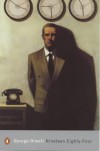Welcome to the N.H.K.
 Since I loved watching the japanese anime tv-series "Welcome to the NHK", I was eager to read the novel that inspired it.
Since I loved watching the japanese anime tv-series "Welcome to the NHK", I was eager to read the novel that inspired it."Welcome to the NHK" tells the story of Satou Tatsuhiro, a japanese hikikomori, a misfit who avoids any contact with society by staying always confined at home.
I can relate to the hikikomori phenomenon, and to the japanese culture in general, and I'm interested in learning more about it.
I had great expectations from this book, but I got quite disappointed.
Some parts of the book and some dialogues did not seem to make much sense. Maybe it was a translation problem; translating from japanese to english must be very difficult. Indeed I'm pretty sure that something was lost because of the translation. For instance, the japanese word "Senpai", used quite often in the japanese language version of the anime, was translated as "female upperclassman"; although technically correct, it did non seem to me like a very good choice; if some words can't be translated properly, maybe they should not be translated at all.
Usually a book, compared to the movie or anime based on it, is longer, better, deeper and more meaningful.
Instead, this book was like a lesser version of the anime tv-series; actually, the anime took the best ideas from the novel and developed them into a longer and much more enjoyable and consistent story.
Even the main characters are poorly described in the book: Misaki is "wearing normal clothing", "dressed in jeans styled like what other young people wore" and has an "unnecessarily cute smile", that's all.
But it's not surprising, since the writer himself is a hikikomori, so I guess that the lack of practice somehow impaired his talent for writing and communicating; as the main character says in chapter 2, "I hadn't had proper contact with another human being for almost a year. I felt like I might forget how to speak Japanese if I kept going at this rate."
In the novel there is often a transcription of the main character thoughts, unfiltered, which is sort of interesting, to better understand what goes on inside the mind of a hikikomori. These thoughts are sometimes lucid and sharp, sometimes confused, paranoid, morbid and delirious, therefore the book is not always an enjoyable read, but maybe it's not supposed to be.
Anyway, despite the flaws I mentioned, the main story is brilliant, touching and meaningful; besides, in the book there are some insightful ideas that allow to understand better the hikikomori phenomenon.
I believe that it is still a book worth reading to the end, maybe skipping a few paragraphs once in a while.





